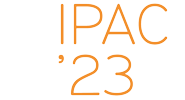Speaker
Description
The Large Hadron Collider (LHC) is equipped with a betatron halo collimation system designed to prevent magnet quenches during periods of reduced beam lifetime. Protons subject to single diffractive scattering in collimators can nevertheless leak into the adjacent dispersion suppressors (DS). In view of the future high-luminosity (HL) upgrade of the LHC, a better understanding of the quench margin in these DS magnets is needed, considering the increased beam current and the resulting higher beam losses of up to 1 MW of power within a few seconds, which the collimation system is designed to withstand. In this contribution, we present FLUKA power deposition simulations for a controlled beam loss experiment at 6.8 TeV, probing the quench level of the superconducting magnets most exposed to collimation losses. The results are compared with the expected power deposition in HL-LHC operation, considering different collimator settings. In particular, we studied the power deposition for relaxed collimator gaps, which are considered as the baseline configuration for initial operation in Run 4.
| I have read and accept the Privacy Policy Statement | Yes |
|---|

